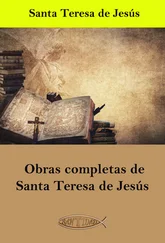26. Though learning does not seem necessary for discretion, my opinion has always been, and will be, that every Christian should continue to be guided by a learned director if he can, and the more learned the better. They who walk in the way of prayer have the greater need of learning; and the more spiritual they are the greater is that need. Let them not say that learned men not given to prayer are not fit counsellors for those who pray: that is a delusion. I have conversed with many; and now for some years I have sought them the more, because of my greater need of them. I have always been fond of them; for though some of them have no experience, they do not dislike spirituality, neither are they ignorant of what it is, because in the sacred writings with which they are familiar they always find the truth about spirituality. I am certain myself that a person given to prayer, who treats of these matters with learned men, unless he is deceived with his own consent, will never be carried away by any illusions of the devil. I believe that the evil spirits are exceedingly afraid of learned men who are humble and virtuous, knowing that they will be found out and defeated by them.
27. I have said this because there are opinions held to the effect that learned men, if they are not spiritual, are not suited for persons given to prayer. I have just said that a spiritual director is necessary; but if he be not a learned man, he is a great hindrance. It will help us much if we consult those who are learned, provided they be virtuous; even if they be not spiritual, they will be of service to me, and God will enable them to understand what they should teach; He will even make them spiritual, in order that they may help us on. I do not say this without having had experience of it; and I have met with more than two.
28. I say, then, that a person who shall resign his soul to be wholly subject to one director will make a great mistake, if he is in religion, unless he finds a director of this kind, because of the obedience due to his own superior. His director may be deficient in the three requisites I speak of, 12and that will be no slight cross, without voluntarily subjecting the understanding to one whose understanding is none of the best. At least, I have never been able to bring myself to do it, neither does it seem to me to be right.
29. But if he be a person living in the world, let him praise God for the power he has of choosing whom he will obey, and let him not lose so excellent a liberty; yea, rather let him be without a director till he finds him--for our Lord will give him one, if he is really humble, and has a desire to meet with the right person. I praise God greatly--we women, and those who are unlearned, ought always to render Him unceasing thanks--because there are persons who, by labours so great, have attained to the truth, of which we unlearned people are ignorant. I often wonder at learned men--particularly those who are in religion--when I think of the trouble they have had in acquiring that which they communicate to me for my good, and that without any more trouble to me than the asking for it. And yet there are people who will not take advantage of their learning: God grant it may not be so!
30. I see them undergo the poverty of the religious life, which is great, together with its penances, its meagre food, the yoke of obedience, which makes me ashamed of myself at times; and with all this, interrupted sleep, trials everywhere, everywhere the Cross. I think it would be a great evil for any one to lose so great a good by his own fault. It may be some of us, who are exempted from these burdens--who have our food put into our mouths, as they say, and live at our ease--may think, because we give ourselves a little more to prayer, that we are raised above the necessity of such great hardships. Blessed be Thou, O Lord, who hast made me so incapable and so useless; but I bless Thee still more for this--that Thou quickenest so many to quicken us. Our prayer must therefore be very earnest for those who give us light. What should we be without them in the midst of these violent storms which now disturb the Church? If some have fallen, the good will shine more and more. 13May it please our Lord to hold them in His hand, and help them, that they may help us.
31. I have gone far away from the subject I began to speak of; but all is to the purpose for those who are beginners, that they may begin a journey which is so high in such a way as that they shall go on by the right road. Coming back, then, to what I spoke of before, 14the meditation on Christ bound to the pillar, it is well we should make reflections for a time, and consider the sufferings He there endured, for whom He endured them, who He is who endured them, and the love with which He bore them. But a person should not always fatigue himself in making these reflections, but rather let him remain there with Christ, in the silence of the understanding.
32. If he is able, let him employ himself in looking upon Christ, who is looking upon him; let him accompany Him, and make his petitions to Him; let him humble himself, and delight himself in Christ, and keep in mind that he never deserved to be there. When he shall be able to do this, though it may be in the beginning of his prayer, he will find great advantage; and this way of prayer brings great advantages with it--at least, so my soul has found it. I do not know whether I am describing it aright; you, my father, will see to it. May our Lord grant me to please Him rightly for ever! Amen.
1Ch. xi. § 24.
2Philipp. iv. 13; "Omnia possum in Eo."
3Confess. x. ch. 29: "Da quod jubes, et jube quod vis."
4St. Matt. xiv. 30: "Videns vero ventum validum, timuit."
5Ch. vii. §§ 27, 31.
6Ch. vii. § 16.
7See ch. xxxi. § 7, and ch. xxxix. § 14.
8Ch. xii. § 3.
9See St. John of the Cross, Living Flame , pp. 267, 278–284, Engl. trans.
10See ch. xv. § 20.
11§ 18.
12Prudence, experience, and learning; see § 24.
13Dan. xii. 3: "Qui autem docti fuerint, fulgebunt quasi splendor firmamenti."
14§ 19.
Table of Contents
The Second State of Prayer. Its Supernatural Character.
1. Having spoken of the toilsome efforts and of the strength required for watering the garden when we have to draw the water out of the well, let us now speak of the second manner of drawing the water, which the Lord of the vineyard has ordained; of the machine of wheel and buckets whereby the gardener may draw more water with less labour, and be able to take some rest without being continually at work. This, then, is what I am now going to describe; and I apply it to the prayer called the prayer of quiet.
2. Herein the soul begins to be recollected; it is now touching on the supernatural--for it never could by any efforts of its own attain to this. True, it seems at times to have been wearied at the wheel, labouring with the understanding, and filling the buckets; but in this second degree the water is higher, and accordingly the labour is much less than it was when the water had to be drawn up out of the well; I mean, that the water is nearer to it, for grace reveals itself more distinctly to the soul.
3. This is a gathering together of the faculties of the soul within itself, in order that it may have the fruition of that contentment in greater sweetness; but the faculties are not lost, neither are they asleep: the will alone is occupied in such a way that, without knowing how it has become a captive, it gives a simple consent to become the prisoner of God; for it knows well what is to be the captive of Him it loves. O my Jesus and my Lord, how pressing now is Thy love! 1It binds our love in bonds so straitly, that it is not in its power at this moment to love anything else but Thee.
Читать дальше












